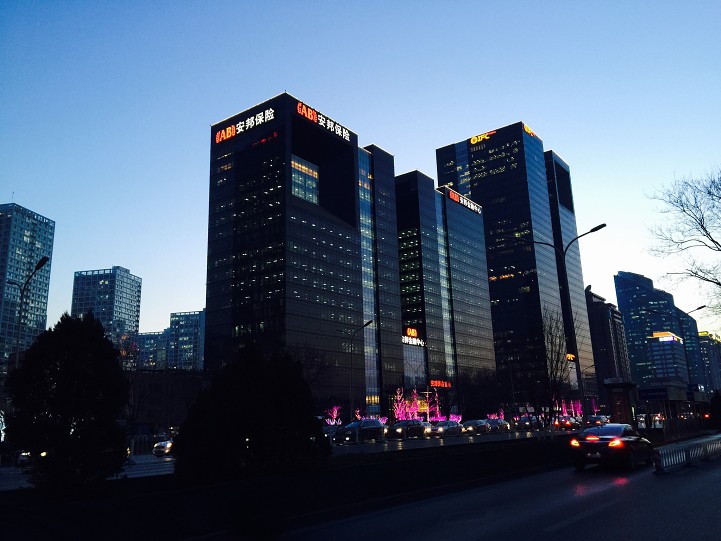Great. The lives of seniors in B.C. care homes, where they are already over-drugged and under-supported, now depend in part on the Chinese government.
On Friday, Beijing seized control of Anbang Insurance Group, a financial giant with investments around the world. It cited corruption, fraud and a risk the whole $390-billion company could go broke.
Last year, Anbang spent an estimated $1 billion to buy Retirement Concepts, which operates 21 seniors homes in British Columbia. It’s the biggest private provider in the province, collecting $87 million from the provincial government in 2015/16.
Anbang has no experience in seniors care. Its finances were murky and ownership so tangled as to be incomprehensible. It offered no promises of additional investment in the company or increased employment. Concerns about its business practices were already widespread.
But to promote its pro-China agenda, the Trudeau government turned a blind eye to the risks — and shifted them to seniors. Ottawa quickly approved the takeover, and the provincial government offered no objections and transferred operating licences to the Chinese company.
Last week’s Chinese government takeover is no surprise. When the sale was debated in the House of Commons, Conservative Mark Strahl asked what would happen “when the Anbang house of cards finally collapses.”
“Are seniors about to find out that their landlord is actually the People’s Republic of China?” the Chilliwack-Hope MP asked.
And that is exactly what seniors and their families have learned.
Why does it matter? The B.C. government went along with the deal because it said Anbang would still have to meet provincial standards.
But if one of the 21 residences needs significant improvements, where will the money come from? Lenders won’t be keen; the managers running Anbang for the Chinese government aren’t likely to let subsidiaries increase debt when they fear it’s already insolvent.
If the Chinese government’s goal is to save Anbang, what pressure will be put on its global properties to deliver more cash, and how will that affect residents? As one small example, Seniors Advocate Isobel Mackenzie reported last month that food costs in seniors’ residences across the province varied from $4.92 to $18.44 a day, averaging $8. Will Chinese government pressure force managers to cut costs on basics?
And if Anbang does end up insolvent, as the Chinese government fears, what happens to Retirement Concepts and its residents? (Retirement Concepts issued a statement saying the “temporary change in management at Anbang will not impact the operations, staff or residents.”)
In a Tyee article last year, Scott Sinclair and Stuart Trew offered their prediction if “the company faces liquidity problems, because it has overpaid for foreign acquisitions, for example, or Chinese regulators clamp down on risky insurance products.” It would then try to extract more money from subsidiaries like Retirement Concepts, they warned.
The state of support for seniors in British Columbia is already shameful.
Mackenzie’s annual review found only 15 per cent of facilities were meeting the guideline of 3.36 hours of direct care per resident per day — an improvement over the previous year.
The number sounds abstract. But the reality is that a lack of staff to meet residents’ needs translates into dramatic reductions in quality of life — sitting in soiled diapers, simply because no one is available to help you to the bathroom, showering once a week or less often. And there is the simple lack of someone to talk to for a few minutes, as overworked staff try to keep residences running.
Perhaps as a result, “25 per cent of residents were prescribed antipsychotic medications without a diagnosis of psychosis,” Mackenzie noted. Almost half — 48 per cent — were on antidepressants, even though only 24 per cent had been diagnosed with depression.
And the government has steadily been reducing the hours of home care support for eligible seniors, even though that is the most cost-effective way to keep them healthy and in their homes.
The Anbang deal is the natural continuation of the BC Liberals’ ideological commitment to hand seniors care over to private companies striving to maximize return for their owners.
A 2017 Canadian Centre for Policy Alternatives report noted that between 2001 and 2016, the number of long-term care beds provided by non-profits and the health authorities was cut by more than 10 per cent. The number of spaces provided by for-profit companies increased by 42 per cent. BC Liberal policies promoted for-profit care.
Mackenzie’s report suggests that might be good for companies, but bad for seniors. Last year, 33 per cent of facilities owned and operated by a health authority met the care guidelines, hardly a great record. But among contract residences — including the private businesses — the number was four per cent.
The new government took a significant step to address the problem in this month’s budget, providing $548 million over three years “to improve services for seniors across the continuum, including investments in primary care, home and community care, residential care, and assisted living.” A focus will be on ensuring residences, which serve 28,000 people, provide the recommended number of hours of care.
But we have miles to go. And the Anbang saga — especially governments’ willingness to allow a high-risk Chinese takeover of a Canadian business — show how much our attitude to the importance of seniors’ support needs to change. ![]()
Read more: BC Politics

















Tyee Commenting Guidelines
Comments that violate guidelines risk being deleted, and violations may result in a temporary or permanent user ban. Maintain the spirit of good conversation to stay in the discussion.
*Please note The Tyee is not a forum for spreading misinformation about COVID-19, denying its existence or minimizing its risk to public health.
Do:
Do not: